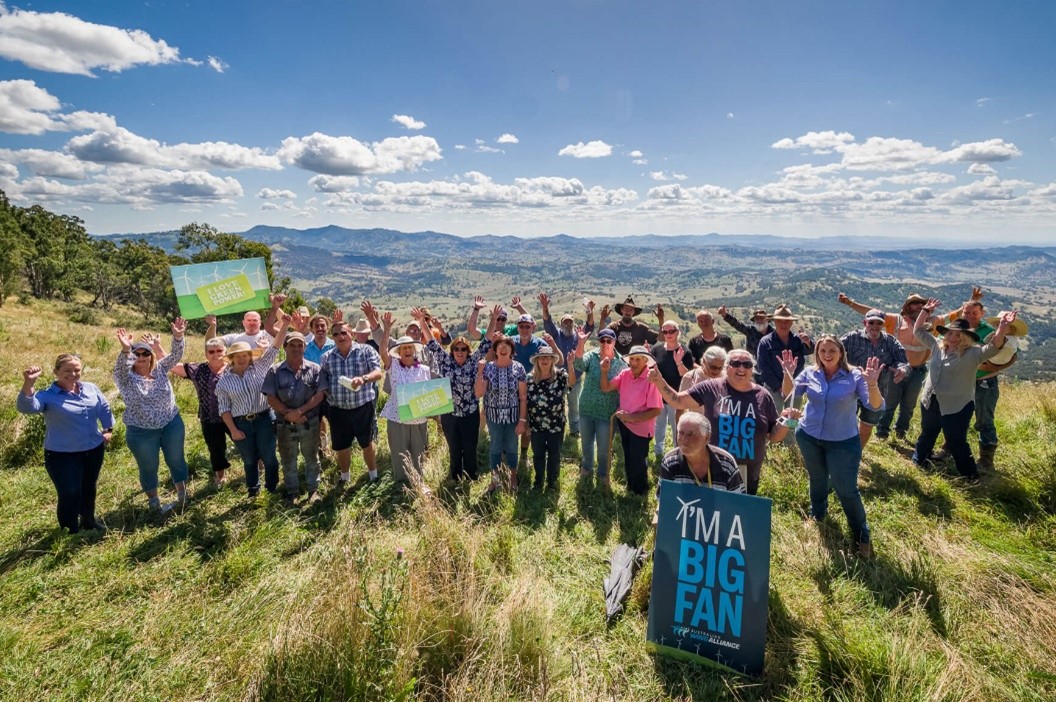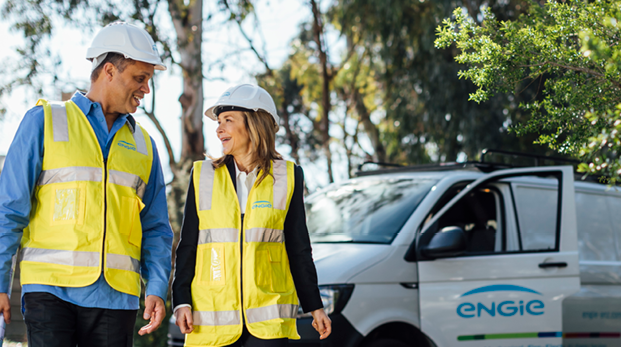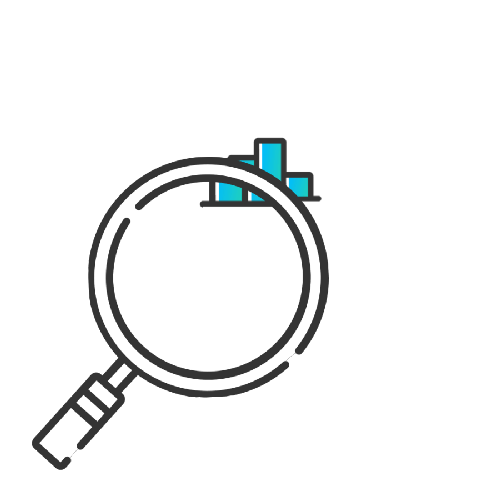Error message title

Error message title
Searching great energy plans for you
Overview
The Plains Renewable Energy Park is a proposed large-scale development that aims to harness wind and solar energy to provide affordable, reliable and clean electricity for homes and businesses in NSW. The renewable energy park will include the construction of an integrated wind and solar farm and will operate alongside agricultural activities.
Located south of Hay, The Plains Renewable Energy Park is strategically positioned within the South-West Renewable Energy Zone (REZ), which was identified by the NSW Government due to the abundance of high-quality wind and solar resources, proximity to transmission infrastructure, relative land-use compatibility and a strong pipeline of potential projects.
We are currently conducting detailed studies and assessments and consulting with local community members and other key stakeholders.
Key figures
- The Plains renewable Energy Park is currently developing an initial concept
- To support the transition to cleaner and more affordable energy, The Plains Renewable Energy Park aims to have a generating capacity of up to 1,900 megawatts, which is the equivalent of powering up to 1.17 million average NSW homes
- To achieve a 1,900 megawatt capacity, preliminary estimates indicate the development may include up to 188 wind turbine generators and approximately 900,900 solar panels
- The Project is expected to include a Battery Energy Storage System (BESS) with a capacity of up to 400 MW / 1.6 GWh
- The Project is considering wind turbines up to 290 meters tall.

Community Sponsorship
Applications have now closed for ENGIE’s 2023 Community Sponsorship Program with successful applicants to be notified by June 30, 2023.
The Program is part of ENGIE’s commitment to supporting the local community and sharing the benefits of the Project. In addition, Paraway Pastoral Company has committed to contributing funding towards the Program.
Following review of the submissions, successful applicants will be notified and published on the project webpage.

Community benefits
Nationwide, the transition to a greater mix of low emission renewable energy sources can provide cleaner energy for households and businesses.
For the local community, The Plains will provide a range of direct and indirect economic benefits including increased local employment and contractor opportunities, with increased spending and activity in the local economy.
As the proposal progresses and in consultation with the community, additional opportunities to provide benefits to the local community will be developed.
Community Engagement
Thank you to all the community members who have attended our community information sessions held in Hay and Booroorban. It has been great to meet so many local residents and gain valuable local feedback.
If you missed these sessions and would like to find out more, the team are available to answer questions over the phone on 1800 845 067 or by emailing [email protected].
Planning Timeline and Documents
The project will require planning approval from the NSW Department of Planning and Environment (DPE), which will involve a scoping report and environmental impact statement (EIS).
We are currently in the initial stages of the proposal, conducting early engagement and preliminary studies to develop a concept plan.
Download The Plains Renewable Energy Park Factsheets:
Early engagement and preliminary studies
Initial stakeholder feedback and local studies, like ecology and cultural heritage surveys, will help our understanding of local values and points of interest to be considered in the concept design for The Plains.
Scoping Report lodgement and exhibition
A scoping report will be lodged with DPE, detailing the results of the early engagement and preliminary studies. Formal public comment is available during the exhibition period to help inform the matters that must be considered in the EIS.
Continued engagement and specialist studies
Continued community feedback will assist in identifying matters to be considered in environmental, cultural and social studies that will ultimately be factored into the design and operations of The Plains. Feedback will also be used to minimise potential impacts and maximise benefits.
EIS lodgement and exhibition
An Environmental Impact Statement (EIS) will be lodged with DPE and will be on exhibition for formal community and stakeholder feedback. The EIS will detail the proposed design, results of the specialist studies and outcomes of engagements.
Response to submissions and planning approval
DPE will consider the formal EIS feedback in making its recommendations for planning approval. We will continue to engage local community members and other stakeholders after the EIS is submitted and, subject to approval, throughout construction and ongoing operations.
FAQs
Why is the project needed?
The energy landscape is transitioning from a system dominated by coal-fired power stations to a greater mix of renewable energy. To facilitate a strategic transition, the NSW Government developed the Electricity Strategy and Electricity Infrastructure Roadmap. These documents set out the plan to help replace the State’s aging power stations with Renewable Energy Zones.
Renewable Energy Zones will connect multiple renewable energy generators and storage, like The Plains Renewable Energy Park, capitalising on economies of scale to deliver cheap, reliable and clean electricity for homes and businesses in NSW.
What infrastructure will be on site?
The proposed infrastructure includes:
- Wind turbine generators
- Solar arrays
- Energy storage system
- Ancillary and supporting infrastructure.
How do wind turbines work?
Read our article: How we wind turbines work?
How does solar power work?
Read our article: How does solar power work?
How will you consult the community?
Stakeholder and community consultation will occur across all stages of the development proposal.
With the project in its early stages, we will be asking the community for feedback on local values, future community engagement activities and project benefits. The information provided will be used to inform the design and benefits of the project.
As part of the planning approval process, there will also be opportunities to provide formal feedback.
What are the economic benefits of The Plains Renewable Energy Park?
The proposed development of The Plains Renewable Energy Park will provide a range of direct and indirect economic benefits, including:
- increased local employment and contractor opportunities during construction and the operation of The Plains
- increased spending and activity in the local economy
- supporting the transition to cleaner and cheaper energy for Australian households and businesses.
Will The Plains Renewable Energy Park reduce the value of the land in Hay?
A number of studies have been undertaken both within Australia and overseas, into the impact of renewable developments on nearby property values.
In 2016, the NSW Office of Environment and Heritage commissioned a report into the potential impact of wind farms on property values. The report concluded that across the case studies reviewed in NSW and VIC, there was no evidence of negative impacts on property values. Furthermore, the resale values of all the properties examined in the report experienced capital growth in line with the property market trends.
In another study completed in 2013, national property consultants Preston Rowe Paterson conducted an assessment of the impact of wind farms on surrounding land values in Australia, and similarly concluded that there was no ‘quantifiable effect on land values’.
It is important to note many factors influence land and property prices. Supply and demand, proximity to amenities and infrastructure, housing affordability and the desirability of the location can all have an impact.
Your feedback
Our community and stakeholders provide valuable feedback that helps shape our work. We appreciate hearing from you on what we are doing well and where we haven’t met the mark, so that we can take ownership and improve.
Our Community & Stakeholder Feedback Framework details our approach to feedback and how we manage complaints.
FAQs
1. What feedback can I provide?
You can provide feedback about ENGIE operational assets and our asset development projects. If your feedback relates to other ENGIE activities, including our retail and residential energy solutions, please visit our contact us page.
At ENGIE Renewables Development, we define feedback as any communication we receive from you. Types of feedback include:
| Comments, which can be either positive or negative but do not require further action. | |
| Enquiries, which are neither positive nor negative but require further action. | |
| Complaints, which are negative and typically require a response or resolution. |
2. How can I provide feedback?
You can provide feedback by:
- sending an email to [email protected]
- calling our dedicated projects phone line on 1800 845 067 Monday to Friday, 9am to 5pm
- talking to us in person
If you are deaf or have a hearing or speech impairment, you can use the National Relay Service to provide your feedback. If English is not your first language, you may use the National Translating and Interpreting Service. We accept feedback from other people on your behalf.
3. How will my feedback be dealt with?
All feedback will be recorded and dealt with according to our five guiding principles:
- Fairness: You will be treated fairly. If your feedback is negative and handled as a complaint, our actions and decisions will be respectful, impartial, and evidence-based.
- Transparency: Information about how to provide feedback is published on our website, with open and honest feedback sought.
- Accountability: We treat all feedback as an opportunity for continuous improvement.
- Accessibility: Feedback can be provided verbally over the phone or in person; or in writing by letter, email or online form.
- Responsiveness: If a response is required, we will reply courteously and within our stated timeframes, and we will keep you informed about the progress of a complaint.
4. How will my feedback, including complaints, be managed?
Feedback, including complaints, will be managed through our feedback process.
5. What if I am not happy with the outcome of my complaint?
If you believe your complaint isn’t adequately resolved, you can ask us to escalate the matter to a staff member at a higher level within our organisation, who will work with you to investigate further and find a solution.
If the complaint still isn’t resolved to your satisfaction, we suggest you contact the Australian Energy Infrastructure Commissioner or your local ombudsman.
Phone: 1800 451 524
Phone: 1800 068 908
Phone: 1800 806 314
Phone: 1800 182 150
Phone: 1800 117 000
6. How is my personal information handled?
Personal information that identifies individuals will only be disclosed or used by ENGIE Renewables Development as permitted under the relevant privacy laws, secrecy provisions and any relevant confidentiality obligations.
The ENGIE ANZ Group’s Privacy Policy details our commitment to complying with the Privacy Act 1988 (Cth) (Privacy Act).

Supplier and employment opportunities
ENGIE has a robust local engagement strategy and is firmly committed to creating jobs for local people and engaging with Indigenous and local suppliers. Whether it’s earthworks, infrastructure, building contractors, machinery operators and engineering, or accommodation, administration, catering, freight and cleaners – a number of skills and suppliers will be required by our head contractor during the construction phase of the project, including opportunities for local and Indigenous suppliers.
Head contractors
The proposed project will be delivered for and on behalf of ENGIE via ‘head contractors.’ The head contractors will be responsible for subcontracting a range of skills and suppliers. As part of our key objectives for the project, ENGIE will continue to work closely with its head contractors to ensure the delivery and quality of opportunities for local and Indigenous people and suppliers.

